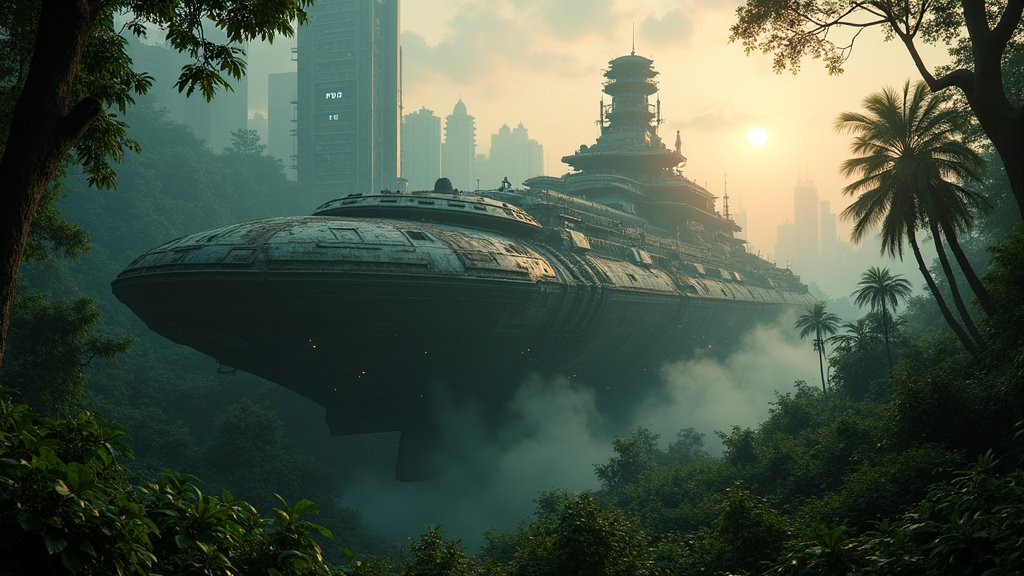The Alien franchise, a titan of cinematic terror, is poised for a significant expansion with the highly anticipated new FX TV series, Alien: Earth. Marking the first live-action television production in the storied universe, this ambitious show is set to launch on Disney+ in South Africa on August 13 with its initial two episodes, followed by weekly releases until September 23. Early glimpses, covering these first two installments, reveal a production of considerable scope and expense, attempting to blend the chilling stylings of the original film with a distinct tropical dystopian aesthetic.
A New Era of Corporate Control and Existential Dread
Alien: Earth transports viewers to the year 2120, a mere two years prior to the harrowing events that unfolded in the seminal 1979 film. This era paints a bleak picture of our home planet, Earth, now firmly under the iron grip of powerful, sprawling corporations. Among these, the infamous Weyland-Yutani Corporation looms large, a name synonymous with ruthless ambition and the pursuit of dangerous biological assets. However, they are not alone in their corporate dominion. The Prodigy Corporation emerges as a formidable new player, adding a fresh layer of intrigue and moral ambiguity to the franchise’s established lore. This powerful entity is led by the enigmatic figure of Boy Kavalier, a character whose vision extends beyond mere corporate profit into the very fabric of human existence.
Under Kavalier’s direction, the Prodigy Corporation is engaged in pioneering, and ethically dubious, experiments: the transference of human consciousness into synthetic bodies. This groundbreaking, yet unsettling, technological pursuit promises to introduce profound philosophical questions and potential new forms of horror into the Alien narrative. The series, spearheaded by acclaimed showrunner Noah Hawley, known for his distinctive storytelling approach, appears to be charting a course that is both respectful of its origins and unafraid to explore new, unsettling frontiers within the Alien universe. The sheer scale of the production, evident in every frame, underscores the significant investment made to bring this vision of a corporate-dominated, tropical Earth to life.
The Catalyst: A Crash, A Cargo, A Collision of Interests
The central plot, unveiled in these initial episodes, revolves around a catastrophic event: the crash of a Weyland-Yutani deep space research vessel. This incident is far from mundane, for the vessel carries highly dangerous cargo—a payload whose nature remains veiled in early review, but whose implications are undoubtedly catastrophic. The derelict ship, laden with its perilous contents, inconveniently lands directly within the territorial claims of the Prodigy Corporation. This collision of corporate interests and existential threats sets the stage for a tense, high-stakes narrative that promises to escalate rapidly.
The early review suggests that this setup provides ample opportunity for the franchise’s signature scares to manifest, leveraging the inherent terror of the unknown and the inescapable threat. The narrative weaves the mystery of the crashed vessel with the insidious experiments of the Prodigy Corporation, creating a double helix of dread. The unique tropical dystopian aesthetic offers a stark, visually arresting backdrop, diverging from the cold, sterile environments often associated with the series, yet blending seamlessly with the original film’s chilling stylings to amplify the sense of isolation and vulnerability.
Early Impressions: Soaring Visions and Stumbling Steps
While the ambitious scope and visual prowess of Alien: Earth are undeniable, early impressions from the first two episodes hint at a nuanced reception. The series undeniably soars in its visual execution, delivering a richly detailed and immersive world that feels both fresh and authentically Alien. The distinct tropical setting, combined with the franchise’s inherent dread, creates a compelling atmosphere that is visually stunning and conceptually intriguing. The commitment to high production values is evident, making the world feel tangible and menacing.
However, the review also notes moments where the narrative might stall. While the series successfully delivers on the scares that fans expect, drawing on the visceral terror that is a hallmark of the franchise, some aspects of its unfolding plot may not be as intellectually stimulating as its atmospheric achievements. The intricate corporate machinations and the philosophical undertones of consciousness transfer are rich ground, but the execution, at least initially, might be considered far from smart in every facet of its storytelling, perhaps prioritizing mood and immediate frights over a consistently sharp, intricate plot. This early take suggests a promising, yet potentially uneven, ride that oscillates between moments of breathtaking brilliance and instances where its narrative depth is yet to fully crystallize.
An Anticipated Streaming Event
As the new Alien TV show prepares for its global debut, anticipation continues to build. The decision to launch on Disney+ in South Africa on August 13 with a double-episode premiere is a strategic move, allowing viewers to immediately immerse themselves in Hawley’s vision. The subsequent weekly releases until September 23 will maintain the momentum, fostering discussion and engagement among a global audience keen to see how this iconic science fiction horror franchise evolves on the small screen. This highly anticipated streaming event represents a significant moment for fans of the franchise and the broader landscape of genre television. The ongoing discussion around its strengths and weaknesses will undoubtedly be a trending topic in entertainment news for weeks to come, solidifying its place as a key release in the current wave of new content.





